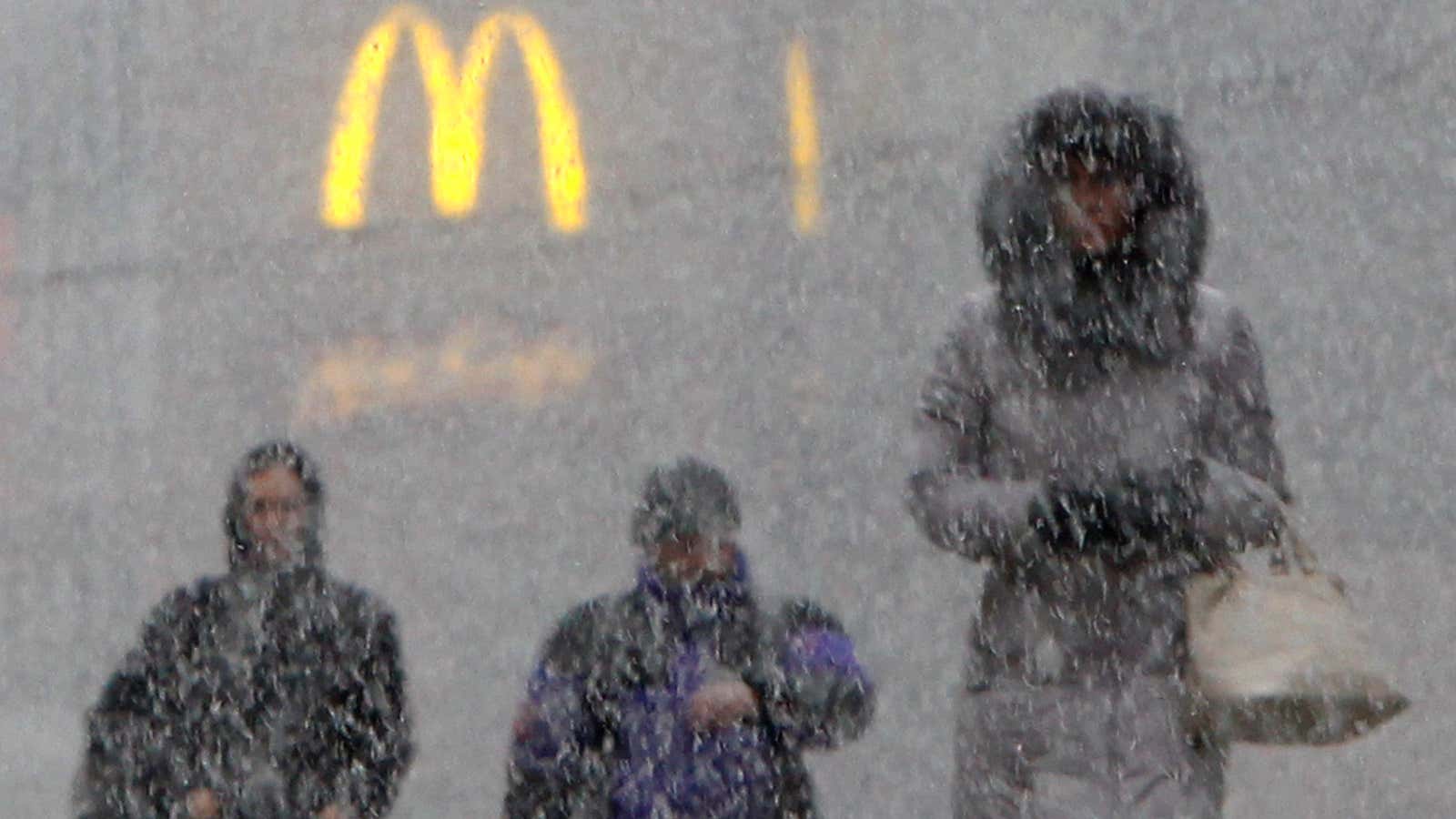As relations between Russia and the US deteriorate, a Russian consumer protection agency has filed a lawsuit in Moscow to make the production and sale of some menu items at McDonald’s illegal.
The agency, Rospotrebnadzor, claims to have found sanitary violations at the iconic American fast-food chain’s restaurants in Russia. Rospotrebnadzor also says that McDonald’s is “deceiving consumers” about the nutritional value of its food, reports Reuters. Specifically, the regulators say that the McDonald’s Filet-o-Fish sandwich, Royale Burger, chicken burger and cheeseburger each have calorie counts “two to three times” higher than reported, and that the protein, fat, and carbohydrate counts on various milkshake and ice cream products are twice as high as their nutrition labels suggest.
“We have identified violations which put the product quality and safety of the entire McDonald’s chain in doubt,” said Anna Popova, the agency’s head and Russia’s chief sanitary inspector.
There are about 400 McDonald’s restaurants in Russia. The first one opened in Moscow’s Pushkin Square in 1990, heralding a new era of Westernization and mirroring in its growth the changing Russian economy. In 2010, that location was one of the chain’s busiest in the world, and Russia was its fastest-growing market in Europe. The 2013 McDonald’s annual report listed Russia as one of its top seven major markets outside the US and Canada.
Though Russia’s relationship with the American burger enterprise has gone through rough patches before, anti-McDonald’s sentiments appear stronger than ever in Moscow today, where resentment remains over the chain’s closures in Crimea in April 2014.
The court will hold a preliminary hearing on Aug. 13. The lawsuit does not seek to shut down McDonald’s in Russia completely—just to remove the offending food items from its menus. Several outlets have noted that the Big Mac has evaded suspicion so far.
A spokesperson for McDonald’s told Reuters that the company had no information about the lawsuit and had not received any direct complaints as of July 25; a statement on the company’s Russian web site added that McDonald’s prioritizes the safety and quality of its products and calculates nutritional value “based on the methodology approved by the Food Institute of the Russian Federation.”
Rospotrebnadzor has a history of engaging in food policy diplomacy, according to The Economist: It banned Moldovan wine imports, citing safety concerns, when Moldova was on track to sign trade agreements with the European Union in November of 2013.
